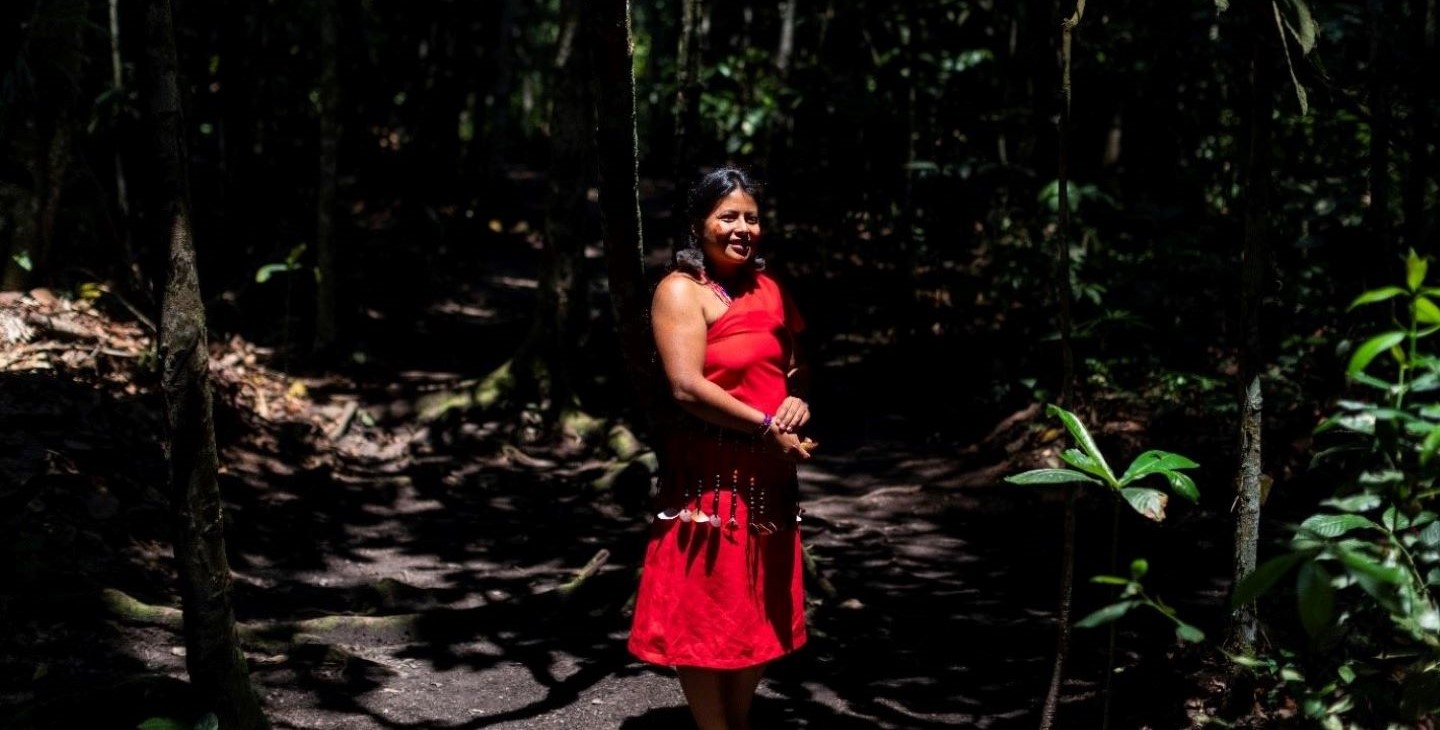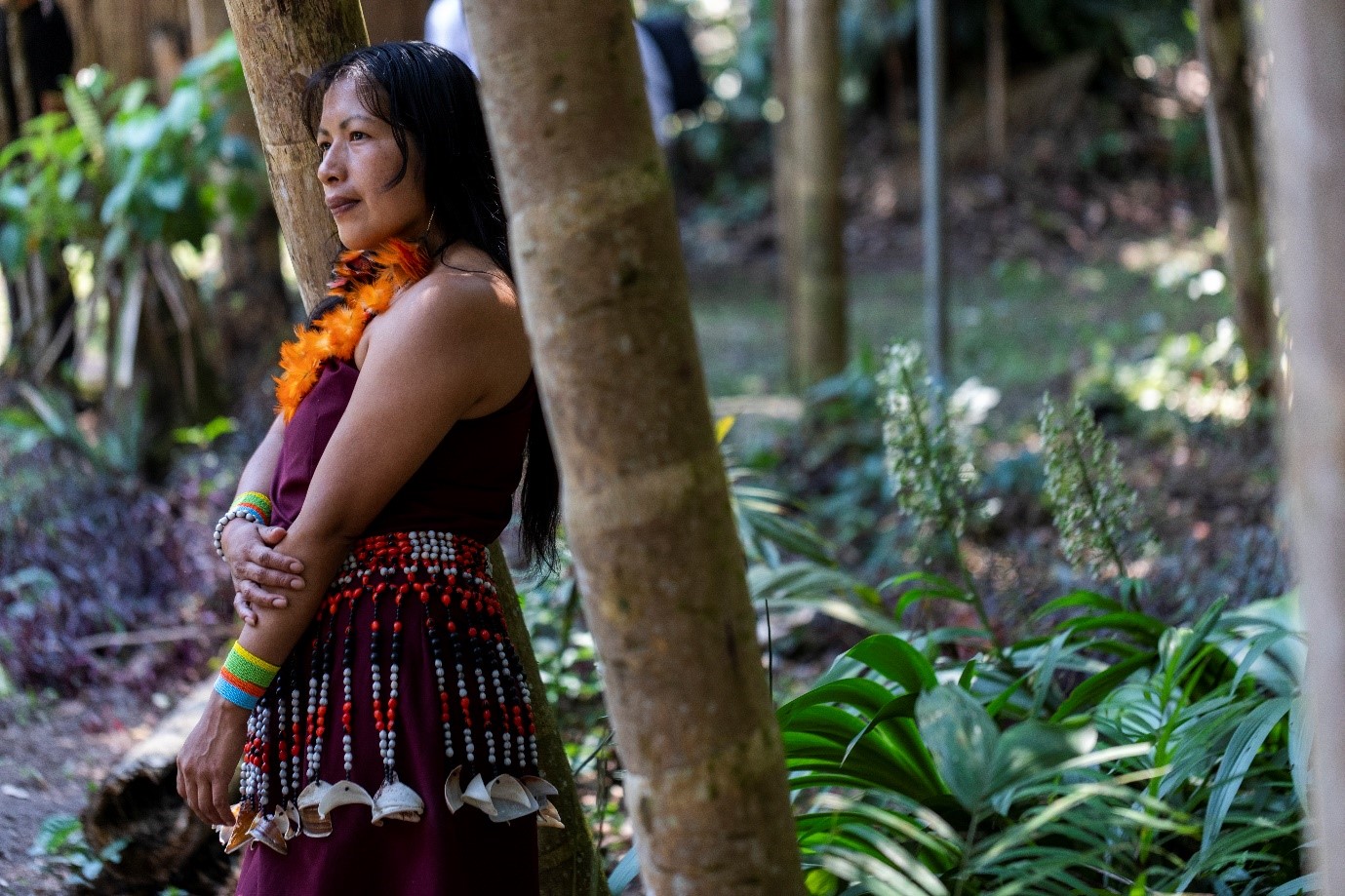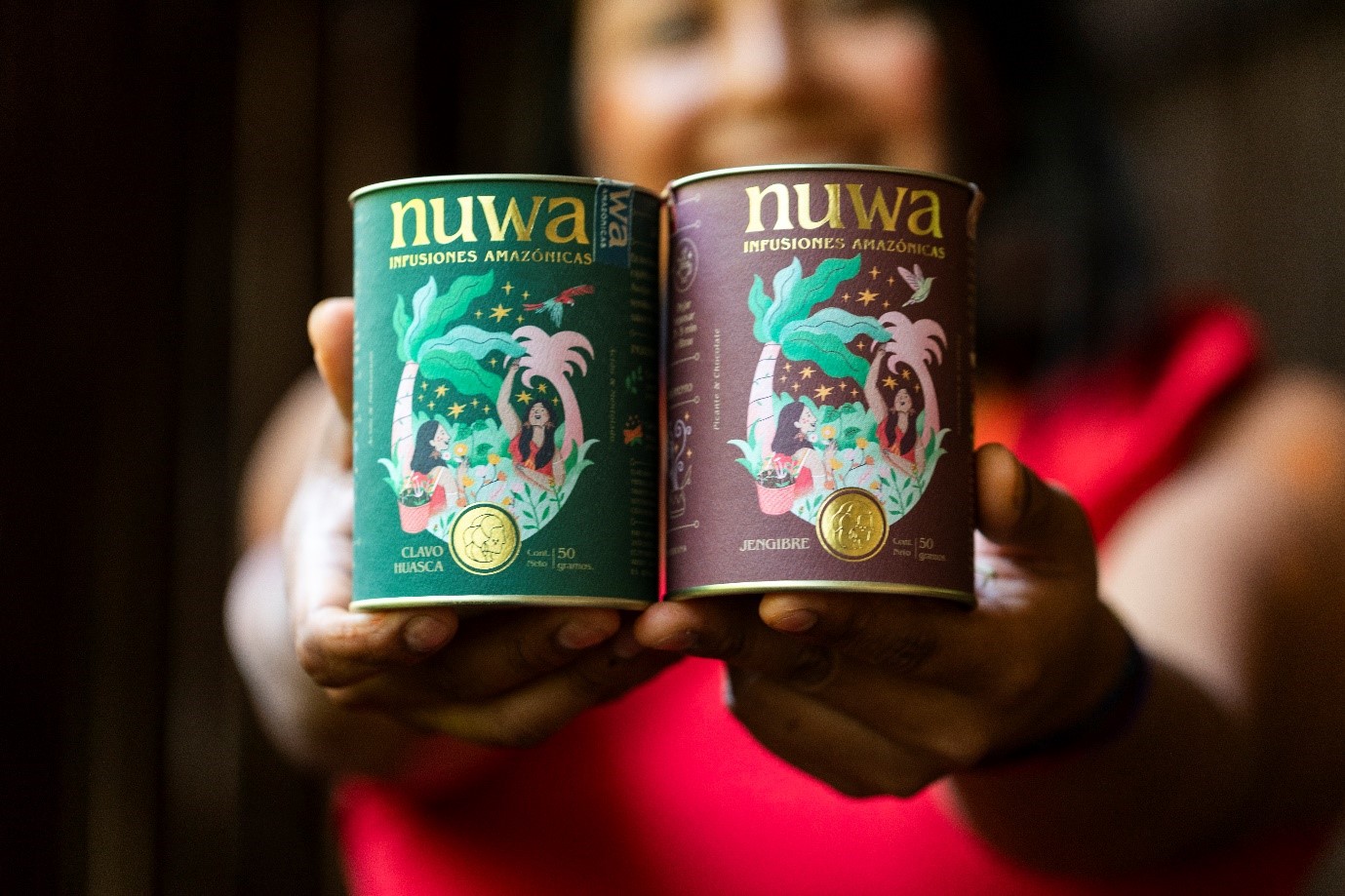Saving the Amazon: The story of the indigenous women fighting climate change
IFAD Asset Request Portlet
Asset Publisher
Saving the Amazon: The story of the indigenous women fighting climate change
Estimated reading time: 3 minutesIn the heart of the Peruvian Amazon, the indigenous women of the Awajún community are protecting their land from a changing climate. Armed with centuries of ancestral guidance, the group of 70 women spend their days beneath the thick canopy of towering cedar trees, in the Bosque de las Nuwas – the women’s forest – farming and reforesting the area.
Their home, the Amazon, is often referred to as the lungs of the planet. But over the years, climate change means rising temperatures, high humidity, drought and strong winds are affecting the region. Erratic weather, coupled with mass deforestation, has destroyed much of the ecosystem and taken its toll on the livelihoods of indigenous communities, making it harder for them to live above poverty line and combat food insecurity.
Plants provide the cure

The Awajún women took matters into their own hands. In 2015, they began cultivating medicinal plants in a bid to revive both the ecosystem and livelihoods. Over nine hectares of land, the Bosque de las Nuwas group grows plants for infusions, while creating a thriving ecotourism business.
They join more than 17,000 farmers supported by Avanzar Rural, a project funded by IFAD and the Peruvian government to build resilience within the rural populations of the country’s highlands and rainforests.
The women – or nuwas in the Awajún language – work tirelessly to protect the land where their grandmothers once taught them how to identify, grow and prepare plants for medicinal purposes, like treating a cold or gastric problems.
Innovation and an eye for opportunity are fundamental to survive and thrive in the Amazon, and these female farmers have these skills in abundance. Today, the forest is both their home and their livelihood.
Entrepreneurship and preservation

“As a woman, I have learnt my traditional customs” says Uziela Achayap, the president of the Nuwas group. “The forest is my home, where I have fought day by day so that women have an entrepreneurial opportunity.”
Uziela believes that the agricultural and reforestation work carried out by the Bosque de las Nuwas team is as much a triumph for the ecosystem as it is for the women themselves. Many of them, she explains, had to battle against deep-seated gender bias to work in the field and become successful entrepreneurs.
Ruth Cumbia Sejekam, the Nuwas group Work Committee Coordinator, believes that raising awareness of the importance of forests is key. She is proud to see people’s interest when they learn about her traditions. “When they get excited, I get excited too, and we all end up laughing.”
Plant Protectors
Since 2015, the Nuwas have planted more than 100 medicinal plants and registered 136 of them in the regional archive. Today, they grow 42 varieties of cassava – an edible woody shrub – and produce tea from three plants, which they sell on the market under the registered brand Nuwa.

Next, they hope to expand their range of products and grow commercially. With the help of Avanzar Rural, they can. A water reservoir and a drip irrigation system mean the Nuwas and other local farmers can withstand drought. The Nuwas have even started raising fish in the reservoir, which eat the algae and keep the water clean.
“Avanzar”
What the Nuwas group is doing does not just benefit themselves.
“The impact of deforestation is definitely felt by indigenous people. It’s been a warning alarm for them, and that’s why now they are developing activities like reforesting”, says Brenda Lopez, of the AGRORURAL Programme of the Ministry of Agriculture in Peru.
Ruth, the Work Committee Coordinator, agrees. “Reforesting is not a benefit for me. At some point, I will no longer be here. Those who will remain are the ones who are going to enjoy the environment, the air and everything that we will leave to them.”
Publication date: 16 November 2022